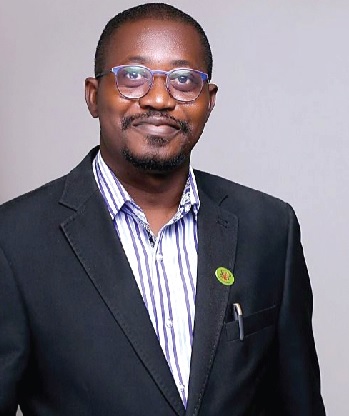The Director of Technical Services at the Ghana AIDS Commission (GAC), Dr Fred Nana Poku, has emphasised the commission’s commitment to rolling out well-structured HIV interventions in mining communities.
He noted that HIV cases were on the rise in mining areas and urged mining companies to collaborate with the commission and invest in interventions to help sensitise community members. Obuasi, Tarkwa and Fanteakwa were cited as some of the affected areas.
Speaking in an interview with The Mirror last Wednesday on the topic “Why the Sudden Surge in HIV Infections?”, Dr Poku attributed the increasing prevalence in mining communities to the combination of “cash and social vices.”
“One reason is poverty, but because of the economic activities in these areas, people often have money to spare and engage in all sorts of social vices. That is why mining communities tend to record higher HIV cases,” he explained.
He added that the GAC would continue to monitor such areas with targeted interventions, including community education on contraceptives, the development of local jingles and the use of sensitisation vans.
He also called for financial support from mining companies to strengthen these efforts.
Rising youth infections
Touching on the broader national picture, Dr Poku said there had been a disturbing rise in HIV infections among young people.
Data showed that more than 15,290 new cases were recorded in 2024, of which over 4,700 were among people aged 15 to 24, representing about 31 per cent of all new infections.

This translates to an average of 13 new youth infections every day.
He warned that this trend signalled a gradual erosion of awareness and preventive practices that were more widespread in earlier decades.
“The growing infections among the youth should not be taken lightly,” he stressed.
HIV and AIDS explained
Dr Poku clarified that HIV and AIDS are not the same. HIV, or Human Immunodeficiency Virus, is the infection, while AIDS — Acquired Immune Deficiency Syndrome — is the most advanced stage of the disease.
“A person may live with HIV for more than 10 years without showing symptoms. But once the immune system breaks down, AIDS develops and the body becomes vulnerable to opportunistic infections such as tuberculosis, pneumonia and certain cancers,” he explained.
According to him, persons who test positive are placed on free Antiretroviral Therapy (ART). Dr Poku said the medication, when taken consistently, suppresses the virus, enabling people to live healthy and productive lives.
However, he cautioned that young people should not become complacent, since it is now difficult to identify carriers because most do not develop visible symptoms such as weight loss or pneumonia.
Why the youth?
Dr Poku said several factors make young people more vulnerable, including risky sexual behaviours, early sexual debut, substance abuse and economic pressures that push some into transactional sex.
“In the past, HIV education was everywhere — on TV, in schools, churches and even on billboards. Today, many young people are not seeing such campaigns. They do not know much about HIV, how it spreads or how to protect themselves,” he noted.
He added that most HIV jingles were produced decades ago when today’s youth were still children.
He stressed the urgent need for new, youth-friendly campaigns to raise awareness.
A 2022 Health Survey, he said, revealed a worrying decline in condom use among Ghanaians, particularly the youth, many of whom rely heavily on emergency contraceptives to prevent pregnancy while ignoring the risks of HIV and other sexually transmitted infections.
Writer’s email address: lydiaezit@gmail.com

